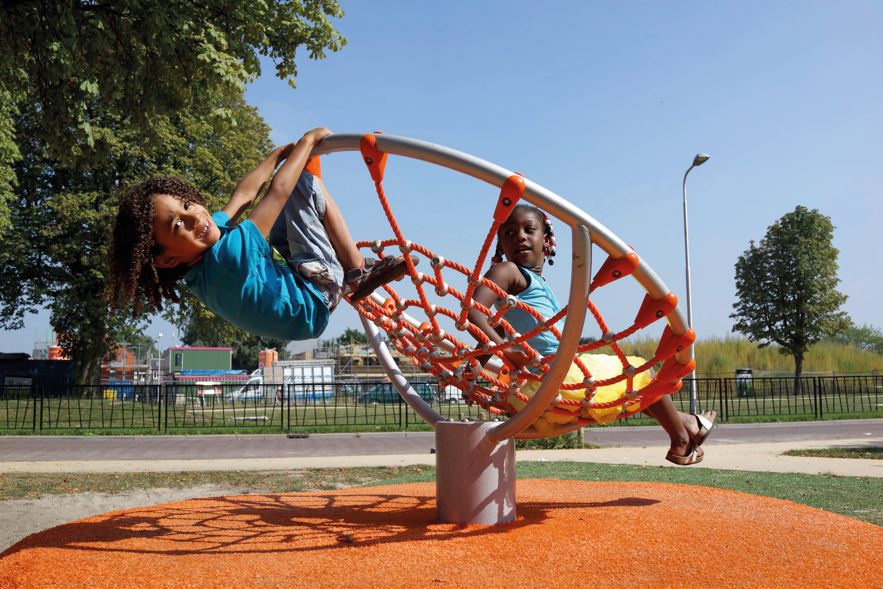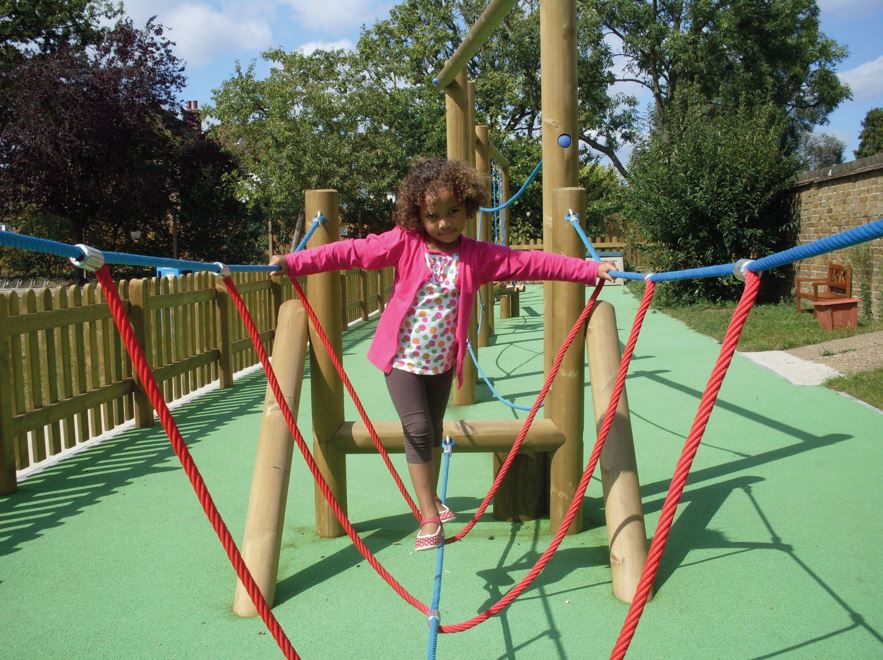
The Association of Play Industries is celebrating its fortieth anniversary this year. It is now calling on the government to provide greater support for the sector, amid local authority closures
Since its inception, the API has promoted best practice and high standards within the industry, championed excellence in public play provision and advocated for the vital role of play in children’s lives. Indeed, the association’s core conviction that every child deserves access to free, local, high-quality outdoor play spaces, sits at the heart of everything they do. Over the decades, the API has been at the forefront of research and campaigns for children’s outdoor play. Play is fundamental to children’s wellbeing and, away from the home, playgrounds are the most popular location for outdoor play. If play is restricted there are likely to be profound effects upon children’s physical and mental health. A well-maintained, high-quality local play area fosters social cohesion, inspires children to get active and can transform a community.
Nowhere To Play
The API’s Nowhere To Play report uncovered the extent to which local authorities across the country were closing children’s playgrounds. The research revealed that between 2014/15 and 2015/16, local authorities across England closed 214 children’s playgrounds, with plans to close a further 234. Further research revealed a decrease in spend on playgrounds of over £13m each year on average across England, with local authorities estimating a decrease in their spending on playgrounds of £25m by 2021.
A Movement for Movement
This research showed, for the first time, a strong link between recreational screen time and children’s inactivity, with children choosing to spend their free hours on screens instead of playing outside. The API called upon the government to invest in outdoor play provision, especially in deprived areas, to reverse the decline in playgrounds.
Play Must Stay
Next, the API commissioned research which showed that parents are worried about the shift from outdoor play to indoor screen time. A survey of 1111 parents with children aged between 2 and 12 found that 9 out of 10 parents who were not close to a playground said that having access would make their child play outside more.
Equal Play
The association’s latest campaign – Equal Play – showed that children’s opportunities to play outdoors are a postcode lottery. Children’s access to public play areas are unequal and unfair, with some areas of the UK having almost five times the number of children per playground as others.
What’s next?
With the support of their members, the API is working on some exciting new campaigns to elevate the crucial role that outdoor play has in children’s lives and the importance of quality public play provision. The hope is that 2024 sees the government prioritise community play spaces, so that every child has access to excellent outdoor play areas every day.

We speak to API chair Dr Amanda Gummer about the work of the API and how she feels children’s wellbeing should be a priority for all.
Can you highlight the ongoing work of the API?
We are supporting our members and championing safe, well-designed, inclusive community play spaces.
What issues is the sector facing as we begin 2024?
Local authority finances – lots declaring bankruptcy, and play is not a statutory funding requirement (which, in our opinion, is something that should be changed) and schools struggling for funding. We’re doing what we can to highlight the universal benefits of play within the levelling up, health (physical and mental), education and local communities agendas, but it’s still not getting the attention it deserves.
There is a general feeling from the leisure sector as a whole that it is being asked to achieve 'more with less'. What would you like to see in terms of government support?
We would agree and we’re calling on all parties to prioritise play and children’s wellbeing in their manifestoes.
What projects and initiatives that are currently underway are you encouraged by?
A Committee at the Department for Levelling up, Housing and Communities has launched an inquiry to find out more about how children and young people experience outdoor spaces across England. The inquiry is investigating what policy interventions from local and central government could help to deliver streets, estates, villages, neighbourhoods and parks that enable kids to enjoy active outdoor lifestyles. The inquiry has published evidence ahead of the opening oral evidence session. The API is one of a 100-strong group of leading experts and organisations that have made written submissions to the inquiry, championing the vital role of public playgrounds and the role the government may have in making the built environment work better for children. We are also very supportive of the #Childrenatthetable campaign and are encouraged by initiatives such as Beat the Street and Playing Out.
Can you outline some of your campaigns that are underway?
As part of our 40th Anniversary celebrations we have a lot going on this year. Some of it is still under wraps but we’re planning a campaign around the importance of play in schools. This is based on recent research we commissioned that showed that outdoor play in the Early Years drops right off as children progress into Key Stage 1 and is almost non-existent in Key Stage 2 and beyond.
What feedback have you had from the industry and your members?
There’s huge support from our members – they represent the committed, child-centred play organisations and are helping us bang the drum for play. There is an increasing appetite for collaboration across different sectors of the play industry and I think things are really starting to come together to affect meaningful change.
Can you name three changes that you would like to see this year to support growth for the sector?
Community playgrounds made a statutory funding requirement of Local Authorities, a more evidence-based approach to commissioning and design of play spaces, and a wider recognition within the education sector of the huge benefits of outdoor play.

